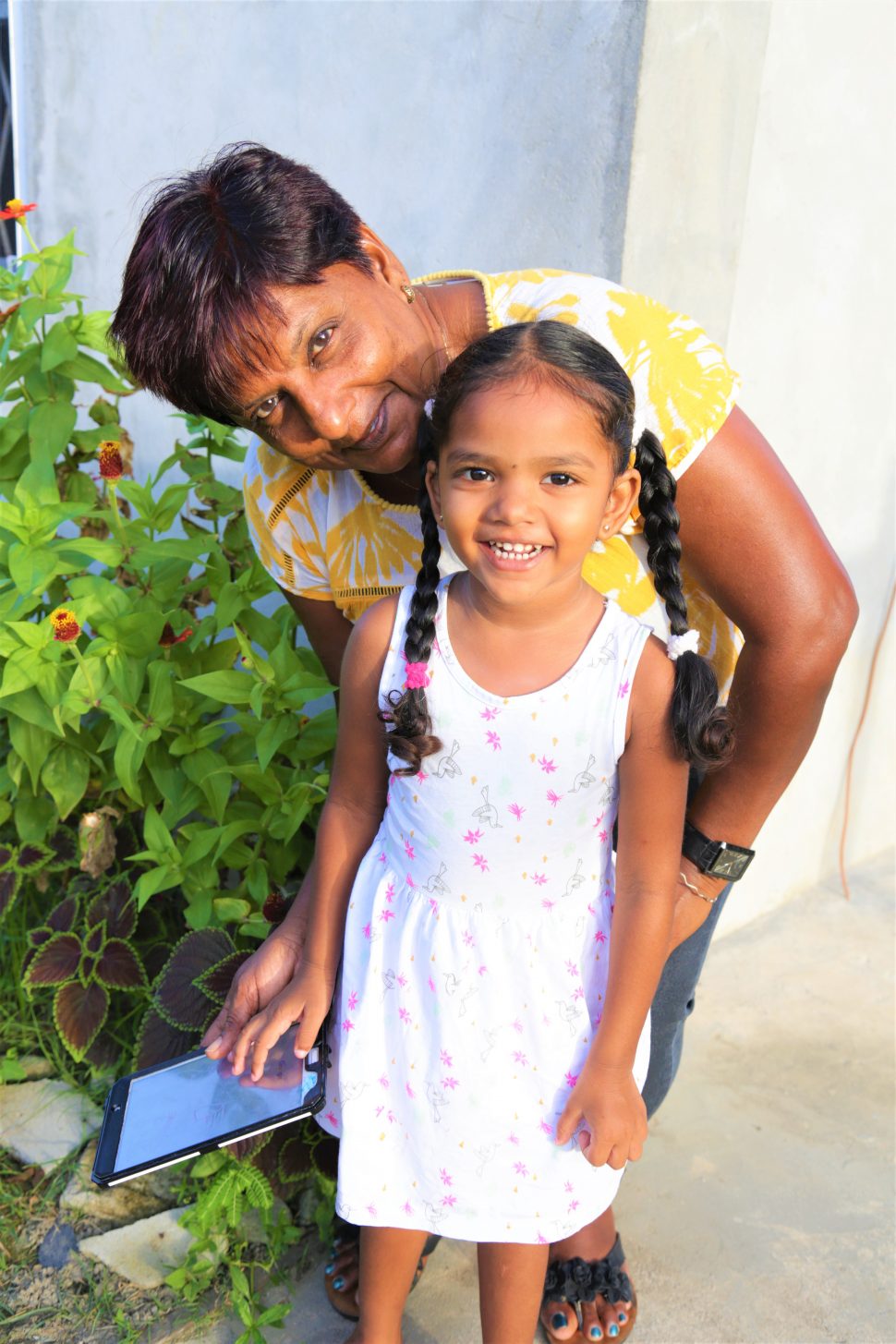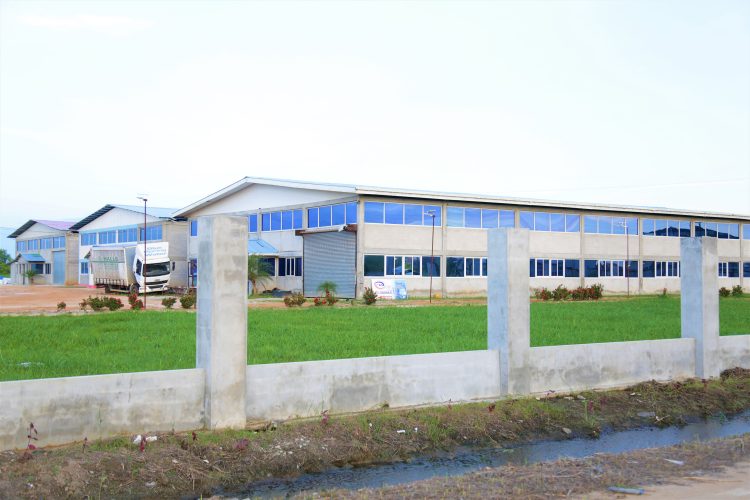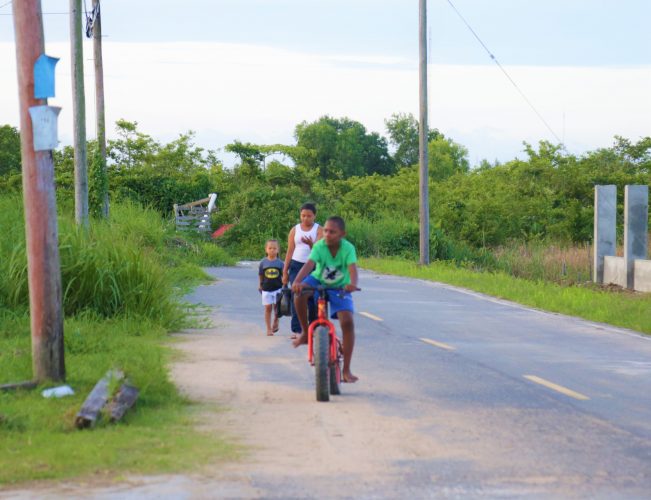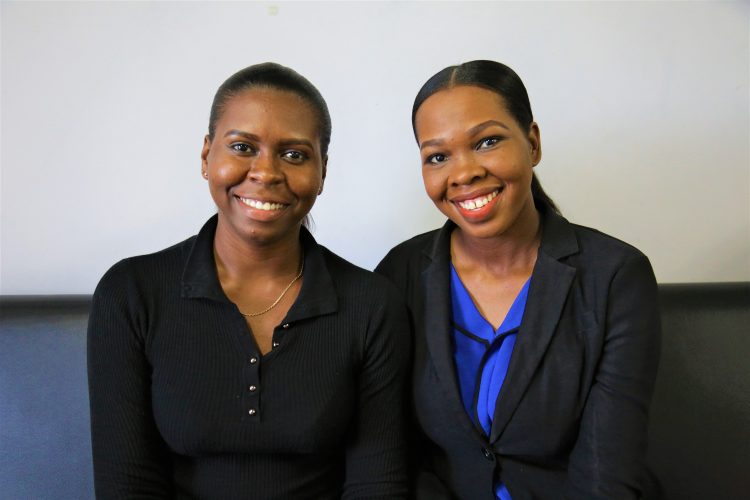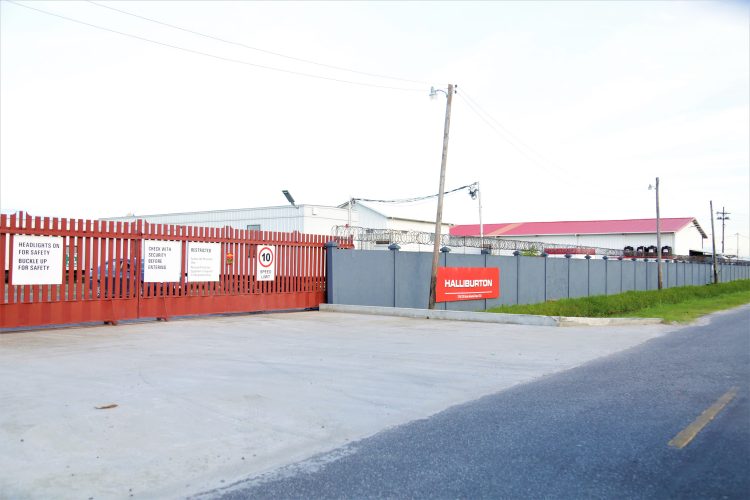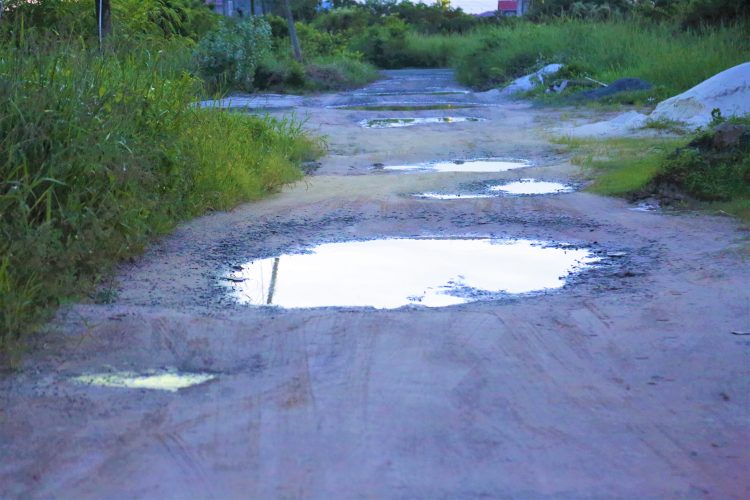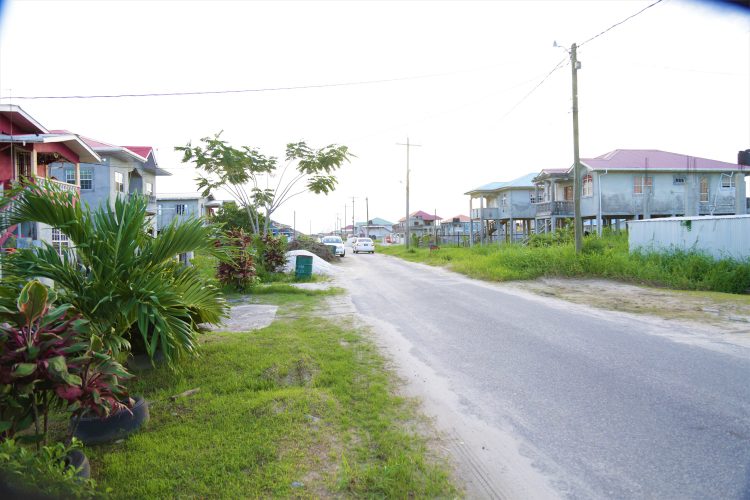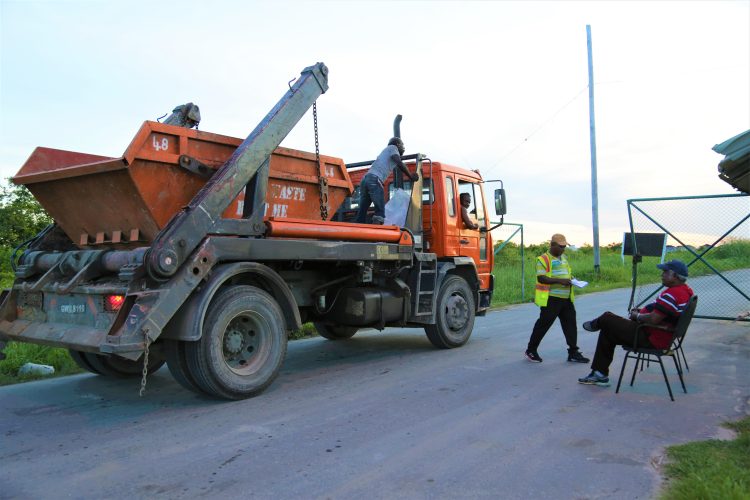Eccles Housing Scheme was designed for middle and high-income families from urban and rural neighbourhoods around Guyana. It is still considered one of the fastest growing communities in the country and has attracted a number of top industrial companies. The Haags Bosch Landfill site is at the back of the village.
The village comprises three sections: CC Eccles New Housing Scheme, DD New Housing Scheme and Eccles New Housing Scheme. Together they have thousands of residents as all three schemes are almost filled to capacity.
Though houses line every street the village seemed quiet. At one property, construction workers were mixing cement and laying the foundation of a house. All around were neat yards, some covered in concrete, others with nicely cut lawns and flowers. Dogs could be seen behind most of the gates, sometimes four to a yard.
At one property, Nalini Singh was bent over trimming the grass growing alongside the drain with a cutlass. There is a crew that normally does this, but she had not seen them and felt she would rather not wait, and so got down to business keeping the grass short. Some of the flowers in the yard she had planted herself though the place belongs to her daughter. She babysits her granddaughter during the day while the child’s parents are away at work, travelling daily from her home in Diamond.
“For the couple of months I have been coming here, I find the place to be nice and quiet,” Singh said. “This part is the Eccles New Housing Scheme. At the back here is the industrial site. The companies here are Halliburton – I hear they have something to do with the oil business. They seem to have a lot of Trinidadian employees. Then there is Bissoon, the window factory, Unicom, Comfort Sleep, the water company Aqua Mist… But this here is nothing different to what we’re accustomed to. We born and grown in Georgetown, so we know about the fast life. Most of the well-to-do people live here and because they are away at work every day, you may only see them in the mornings or afternoons when they going to work or coming from work. You don’t know who building their house next to you or who your neighbour really is so unless they going to or coming from work, you ain’t seeing people about the place.”
Singh’s daily commute sees her taking the ‘Short to Grove’ buses, costing her $100 each way. The taxis at the junction of Eccles cost $400 one way.
Her biggest concern is the massive dumpsite aback the scheme. While residents are rarely affected by the smell emanating from the site, she worries about houseflies in the area, certain that they would have been in contact with the refuse area.
Eccles, she noted, is by far a well-developed community, but needs a school. “They should have a school here. This is a big community and the children going to school even as little as nursery have to get out of the village to whichever schools they go to,” she noted,
Oganna Garraway, a cosmetologist by profession stood in her salon, Oganna’s Creative Styles, working on a hair extension on which she was applying a bleaching agent to create the required style for a customer expected the following day. She has been living in Eccles a little over a year but her profession dates back to a decade. Her welcoming smile was refreshing and familiar.
Garraway hails from the Pomeroon area. Not the talker in her family, she invited her younger sister, Nickesha, to fill in for her.
“Originally, we’re from Liberty in the Pomeroon River,” Nickesha said. “Compared to here, Pomeroon is more country, country I would say. Pomeroon was a totally different scene where occupations were mainly farmers, housewives and miners. Wives mostly had the other option of selling at the market. That’s all they could have really done to make ends meet.
“I was eight or nine when I left Pomeroon. I attended Liberty Nursery then Primary. Although, the schools were located on the same side as the village, persons travelled by boat. Most persons used the paddle boat rather than the engine boats; it took about five minutes to school. My aunt was the one who took us.”
Asked whether she can man a boat, the young woman laughed, “With ease I can. As they say, you can take the girl out of the country, but you can’t take the country out of the girl.”
While the younger Garraway admitted to sometimes missing Liberty, she said she likes living in Eccles much more, specifically because she has more conveniences when it comes to work and the availability of the necessary amenities.
“… In the country a woman is limited to being a housewife but living out here, you have a wider range of things to do and more options as it relates to choosing a career. It’s more challenging in a way but it makes you stronger as an individual and helps you to find yourself,” she said.
Nickesha is employed with the Ministry of Public Health as a pharmacy technician at the Mayor and City Council municipality.
Her biggest challenge, she said, is the transportation and the traffic. Sometimes it can take as long as 45 minutes to get to the East Bank Demerara Highway. In the mornings short-drop cars are available to residents heading out to work. They are dropped off at the head of the scheme. However, the cars do not work for the rest of the day after this. Instead, there are several buses that would ply the route into the schemes in the afternoons.
Oganna added that while they came from an area where everyone was beyond mere courtesies and people were genuinely friendly towards the other, they quickly learned to adjust to the reserved city life. For a number of years, the sisters and their mother had lived on Mandela Avenue prior to moving to Eccles.
They shared their concern over the vacant lots, which they hope will be occupied soon, pointing out a few that are overrun by bush, adding that they will not only harbour reptiles, but criminals and are a breeding ground for mosquitoes. They believe the area needs a playground for children, as well as a school for the younger ones.
“When it comes to safety, I would have to say I don’t feel completely a hundred percent safe. I would say I’m somewhere around eighty, given that the crime rate was at one time really high,” Nickesha said.
Nigel Bissu sat among friends enjoying an afternoon drink having returned home from work. There was music being played a little too loud as everyone was half shouting to be heard.
“I am from Fairfield, Mahaicony. I have been living here for a year now,” Bissu said.
The peacefulness of the Eccles, he shared is on the same level as it was in Mahaicony. However, his former village beats Eccles when it comes to mosquitoes, he chuckled.
Bissu is employed at Permaul’s Trading, a company considered to be the largest distributor of consumer goods specifically potatoes, onions and garlic.
While living in Eccles is convenient regarding the proximity to work, the traffic remains an issue. The man said that to avoid the 45-minute journey out of the village to the highway, he has to leave home before seven every morning, which, of course, means he is at work long before the 8.30 am scheduled time.
Asked how safe he felt living in Eccles, he said, “On a scale of one to ten, seven. Everybody here has dogs for that same reason.”
Bissu mentions that what can be upgraded in the housing scheme are the roads. When the idea of a school in the area was mentioned, the man said that while there are many children living in Eccles, because most of the families belong to the middle class and many of them have enrolled their children in private schools. What Eccles does need, he insisted, is a recreational park where parents can take children out for walks and picnics and where persons can also go jogging.
